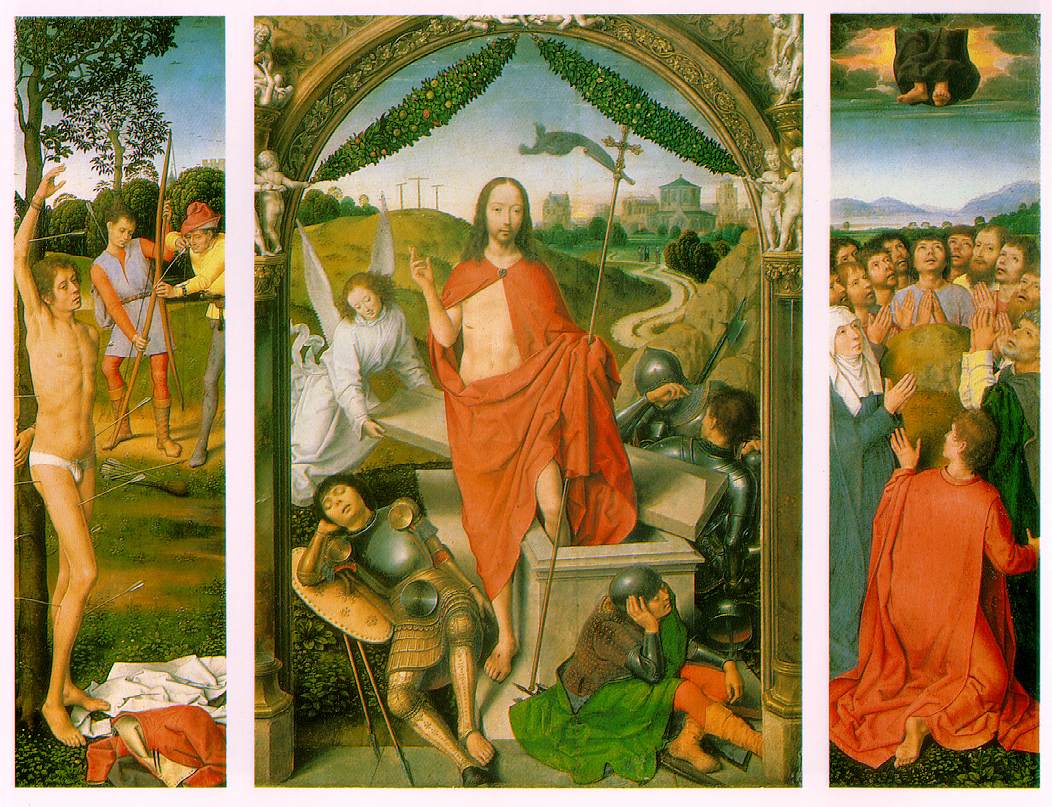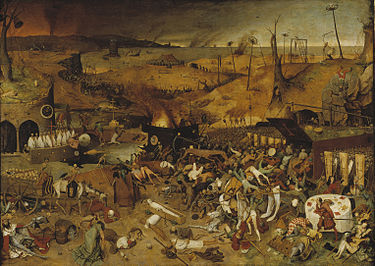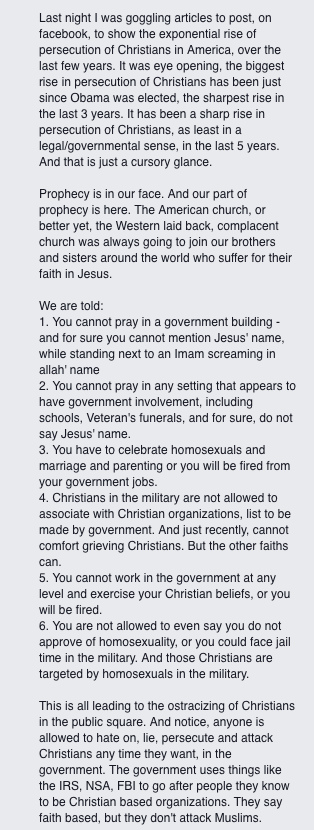I just read a thoughtful plea posted by a friend on Facebook recommending that now is the time to move into opposition. Well, frankly, I think that both he and I, along with most of the subscribers to this blog, have been in opposition from the moment we spilled out into the light of day. But, I think that what John means is that Ms Clinton is so patently, transparently, and vocally committed to principles and policies that we oppose that, whether or not she is elected, it will not make a big difference, whether in the long run or short. It is 1932 again and nothing is going to prevent the NSDAP from implementing its program, either through proxies or directly; so, why not stand up and be counted?

In 1932, however, the SPD was the strongest party in Germany. Standing with the SPD against the Fascists was a no-brainer. Everyone we know and love was there already. Which raises the very interesting question in the US, in 2015, where does the opposition go? Last I looked, there were around 250,000 members of the Green Party (USA); the CPUSA can claim 1% of this number; the DSA is not a party.
The way most of us handle the dismal electoral scene in the US is by separating our activist work — with workers, for the environment, for civil liberties, for the undocumented, for minorities — from our electoral practices. We work assiduously in whatever vocation or avocation we can afford, hoping that our activism will push the electorate a hair’s breadth closer to emancipation, but then come election season, we either opt out or opt sideways.
Analytically, however, the question we ought to be asking is how any of our decisions or actions influence the margin. How will a Ted Cruz or Jeb Bush presidency — which, remember, will in all likelihood be combined with an all-red Congress — transform the context of political action and advocacy? Will it create the kind of critical mass in the opposition that will successfully overcome the police actions that will unquestionably be deployed against it? Will the empowerment of poor, white, male Christians arising from a Ted Cruz or Jeb Bush or Scott Walker presidency, call up an opposition sufficiently robust and well-defined to successfully contest this coup d’etat? Or will it instead hasten the present day equivalent of 6M deaths of innocents?
We have all followed the debates that revolved around these questions — Rosa Luxemburg, Walter Benjamin, Carl Schmitt, et al. — in the 1920s and 30s. So it is not as though the landscape is unclear.
So we can ask whether a Clinton presidency simply moves in this same direction at a slower speed. (Does it save the present day equivalent of 2 or 3M of these 6M? In the short run? Is it worth it?) Or might more resources devoted to public education, public health, and infrastructure actually prove capable of tipping the scales? And what scales, exactly, are we talking about?
Here too we are not without a compass. We will recall Lord Keynes prophetic article in the August 1932 issue of Atlantic Monthly asking why we cannot spend sufficient resources on society in the absence of war that we will no doubt spend in the case of war. Well, we didn’t. Instead, we spent those resources on war: the largest state-coordinated demand-side shock in all of history, still. Economic historians (G Arrighi, J Frieden, B Jessop, R Brenner, J Lough, et al.) point out that this huge demand-side shock, combined with the destruction of Japan and Germany, placed the US economy in good standing well into the 1960s. But it did something else as well. Under the premise that money and wealth (not the same thing) give rise to knowledge, leisure, learning and freedom (Aristotle, GWF Hegel, K Marx), this huge demand-side boost also decanted hundreds of thousands of young minds (with lots of free time) into the newly envigorated Fordist universities that were springing up all over.
Indeed, if we look at the standard right-wing critique of the “closing of the American mind” (L Strauss, A Bloom, et al.), its principle object of critique is the democratization of knowledge and of the American university. Well, nothing solved that problem more effectively than neoliberalism and the rise of the post-Fordist university. Mr Wallerstein: 1968 was not the beginning; it was the end.
So, let us say that, wittingly or not, a Clinton presidency grants more free time, more knowledge, more access to education to the public. Could such a reversal of post-Fordist policies, even though by a hair’s breadth, help create a critical mass?
We know where T Cruz, J Bush, or S Walker’s policies will lead. Look at Wisconsin. Now imagine Wisconsin everywhere. So, where is the margin? Which direction will opposing Ms Clinton move this margin? How fast will it move? With what result?

 There he is. The Lord of the Universe is risen; but notice how the guards are oblivious to his rising. Rome does not care. Its soldiers do not care. They will continue their military campaigns on the Empire’s northern and western borderlands. The women are there. They see him. But the Apostles? Well, they have all gone home. We have gone home. The Kingdom is at hand. Where? Christ is risen! But the world is unmoved and unchanged.
There he is. The Lord of the Universe is risen; but notice how the guards are oblivious to his rising. Rome does not care. Its soldiers do not care. They will continue their military campaigns on the Empire’s northern and western borderlands. The women are there. They see him. But the Apostles? Well, they have all gone home. We have gone home. The Kingdom is at hand. Where? Christ is risen! But the world is unmoved and unchanged. There is a painting attributed to Pieter Bruegel the Elder dated some time around 1562. Its title in English is simply “Triumph of Death.” It depicts the world as it is after the resurrection, after Easter. Death reigns. It still reigns.
There is a painting attributed to Pieter Bruegel the Elder dated some time around 1562. Its title in English is simply “Triumph of Death.” It depicts the world as it is after the resurrection, after Easter. Death reigns. It still reigns.
 The comment appeared among hundreds of comments posted in response to a post by Indiana Governor Mike Pence, defending his signing of Indiana’s new “Freedom of Religion” law. The post has been shared by over 17,000 individuals, not a FB record by any means, but surely significant.
The comment appeared among hundreds of comments posted in response to a post by Indiana Governor Mike Pence, defending his signing of Indiana’s new “Freedom of Religion” law. The post has been shared by over 17,000 individuals, not a FB record by any means, but surely significant.